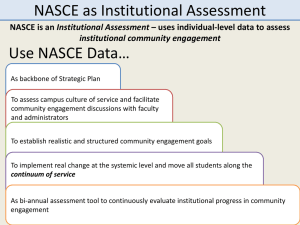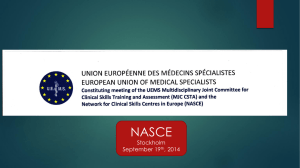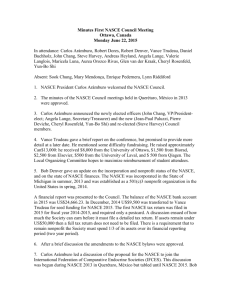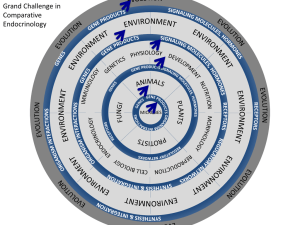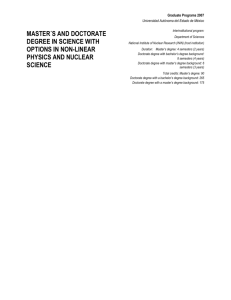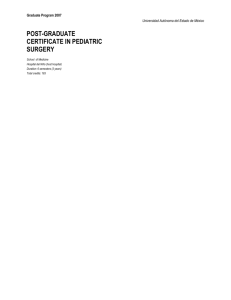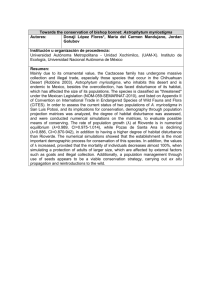Minutes NASCE Council meeting 2013
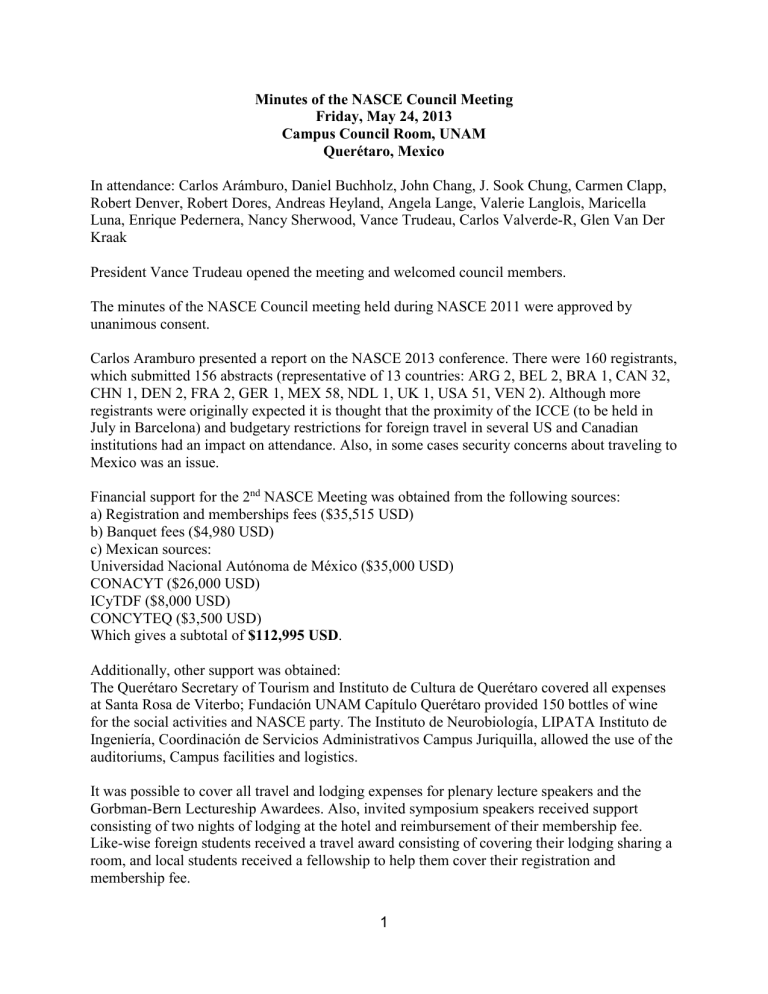
Minutes of the NASCE Council Meeting
Friday, May 24, 2013
Campus Council Room, UNAM
Querétaro, Mexico
In attendance: Carlos Arámburo, Daniel Buchholz, John Chang, J. Sook Chung, Carmen Clapp,
Robert Denver, Robert Dores, Andreas Heyland, Angela Lange, Valerie Langlois, Maricella
Luna, Enrique Pedernera, Nancy Sherwood, Vance Trudeau, Carlos Valverde-R, Glen Van Der
Kraak
President Vance Trudeau opened the meeting and welcomed council members.
The minutes of the NASCE Council meeting held during NASCE 2011 were approved by unanimous consent.
Carlos Aramburo presented a report on the NASCE 2013 conference. There were 160 registrants, which submitted 156 abstracts (representative of 13 countries: ARG 2, BEL 2, BRA 1, CAN 32,
CHN 1, DEN 2, FRA 2, GER 1, MEX 58, NDL 1, UK 1, USA 51, VEN 2). Although more registrants were originally expected it is thought that the proximity of the ICCE (to be held in
July in Barcelona) and budgetary restrictions for foreign travel in several US and Canadian institutions had an impact on attendance. Also, in some cases security concerns about traveling to
Mexico was an issue.
Financial support for the 2 nd
NASCE Meeting was obtained from the following sources: a) Registration and memberships fees ($35,515 USD) b) Banquet fees ($4,980 USD) c) Mexican sources:
Universidad Nacional Autónoma de México ($35,000 USD)
CONACYT ($26,000 USD)
ICyTDF ($8,000 USD)
CONCYTEQ ($3,500 USD)
Which gives a subtotal of $112,995 USD .
Additionally, other support was obtained:
The Querétaro Secretary of Tourism and Instituto de Cultura de Querétaro covered all expenses at Santa Rosa de Viterbo; Fundación UNAM Capítulo Querétaro provided 150 bottles of wine for the social activities and NASCE party. The Instituto de Neurobiología, LIPATA Instituto de
Ingeniería, Coordinación de Servicios Administrativos Campus Juriquilla, allowed the use of the auditoriums, Campus facilities and logistics.
It was possible to cover all travel and lodging expenses for plenary lecture speakers and the
Gorbman-Bern Lectureship Awardees. Also, invited symposium speakers received support consisting of two nights of lodging at the hotel and reimbursement of their membership fee.
Like-wise foreign students received a travel award consisting of covering their lodging sharing a room, and local students received a fellowship to help them cover their registration and membership fee.
1
There was a surplus of US$21,678.58
from NASCE 2013 which will be transferred to the
NASCE bank account.
Bob Denver (Secretary/Treasurer) gave a report on NASCE finances and steps to incorporate the society as a nonprofit. The Ann Arbor conference (NASCE 2011) resulted in a surplus of
$11497.51. Award plaques were purchased for the Gorbman-Bern Lectureships for $205.00 leaving a balance of $11292.00. The NASCE funds are currently held in a University of
Michigan account. They will be transferred to a society bank account once it is established. After approving the NASCE bylaws Bob Denver will submit articles of incorporation with the State of
Michigan, then apply for 501(3)c tax exempt status with the US Internal Revenue Service. He will then open a bank account and transfer the funds.
The NASCE bylaws were discussed and with two minor modifications were approved with unanimous consent.
The following new council members were appointed:
Daniel Buchholz, University of Cincinatti, Ohio, USA
Sook Chung, University of Maryland Center for Environmental Science, USA
Andreas Heyland, University of Guelph, Ontario, Canada
Valerie Langlois, Royal Military College of Canada, Ontario, Canada
Maricela Luna, Universidad Nacional Autónoma de México, Querétaro, México
Enrique Pedernera, Universidad Nacional Autónoma de México, Querétaro, México
(Aurea Orozco, Universidad Nacional Autónoma de México, Querétaro, México was appointed after the conference ended).
Attached is a list of NASCE Officers and Council Members and their terms of office.
Council members who were ending their service on the NASCE Council were thanked:
Brian Barnes, Carmen Clapp, Cunming Duan, David Lovejoy, Nancy Sherwood, Yun-Bo Shi,
Peter Thomas
A proposal to join the International Federation of Comparative Endocrine Societies (IFCES) was discussed. The IFCES Council will meet during the 17 th
ICCE in Barcelona, Spain in July, 2013.
The pros and cons of joining the IFCES were discussed. Some felt that since the NASCE is a new organization the decision to join the IFCES should be delayed until 2015 at the NASCE meeting in Ottawa. A motion to delay joining IFCES and to revisit this proposal during the
Council meeting at NASCE 2015 passed with 15 yes votes, 1 abstention.
Three new NASCE Committees were proposed and approved by the Council, and committee chairs appointed:
Communications Committee (Website development and support) – Valerie Langlois chair
( valerie.langlois@rmc.ca
).
2
Development Committee (Social networking, membership and identifying funding opportunities) – Andreas Heyland chair ( aheyland@gmail.com
).
Awards Committee (Selecting named lectureship awardees, trainee best presentation awards, and review of research scholarship awards) - John Chang chair ( john.chang@ualberta.ca
).
North American Society for Comparative Endocrinology Research Scholarship Awards
The Council voted unanimously at the NASCE Council Meeting held Friday, May 24, 2013
Querétaro, Mexico to establish a research scholarship award to enable trainees working in one of the three North American countries to travel outside of their home country for research training and collaboration. The intention is to foster interaction and collaboration among North American comparative endocrinologists. To be eligible the trainee must be an active member of NASCE and be working towards a research-based Masters of Science degree, be advanced to candidacy in a PhD program (within four years of advancement to candidacy), or be a postdoctoral fellow five years or less from receiving the PhD or MD. Up to three awards of US$1000 will be made each year with two deadlines for application: Sept. 1 and February 1. Applications will be reviewed by the Awards Committee and recommendations for funding will be made to the
President.
There was discussion of having the NASCE website linked from the General and Comparative
Endocrinology website. Bob Dores is going to investigate this.
Vance Trudeau gave a brief report on NASCE 2015 to be held in Ottawa, Canada. Planning is underway for the conference. It will be held during the first week of June.
There was enthusiasm for the possibility of forming a Pan-American Society for Comparative
Endocrinology (PASCE). It was decided that discussion of forming a PASCE would be tabled until the Ottawa meeting. Vance Trudeau will attempt to attract scientists from South America to attend NASCE 2015. Carmen Clapp mentioned that it is difficult to travel to South America, easier for Europe and USA. She suggested forming a World Society for Comparative
Endocrinology (WSCE).
An election for the new Vice President/President-Elect of the NASCE was held by paper ballot.
Biographical sketches of three candidates (all from the US owing to the rotation schedule of this office among the three participating countries; attached) were distributed before the meeting by email and hard copies were distributed during the council meeting. Robert Dores was elected with a majority of the votes.
3
Officers and Council of the North American Society for Comparative Endocrinology
(NASCE; La Societé Nord-Americaine d'Endocrinologie Comparée; La Sociedad
Norteamericana de Endocrinologia Comparada) 2013
Carlos Arámburo, Universidad Nacional Autónoma de México, Querétaro, México (President; term 2013-2015)
Robert Dores, University of Denver, CO, USA (Vice President/President-Elect; term 2013-2015)
Robert Denver, University of Michigan, Ann Arbor, USA (Secretary/Treasurer; term 2011-2015)
NASCE Council
Daniel Buchholz, University of Cincinatti, Ohio, USA (term 2013-2017)
John Chang, University of Alberta, Edmonton, Canada (term 2011-2015)
Sook Chung, University of Maryland Center for Environmental Science, USA (term 2013-2017)
Steve Harvey, University of Alberta, Edmonton, Canada (term 2011-2015)
Andreas Heyland, University of Guelph, Ontario, Canada (term 2013-2017)
Angela Lange, University of Toronto, Mississuaga, Ontario, Canada (term 2011-2015)
Valerie Langlois, Royal Military College of Canada, Ontario, Canada (term 2013-2017)
Maricela Luna, Universidad Nacional Autónoma de México, Querétaro, México (term 2013-
2017)
Stephen McCormick, current chair of the DCE, SICB (ex officio; term 2011-2013)
Mary Mendonça, chair-elect of the DCE, SICB (ex officio; term 2013-2015)
Aurea Orozco, Universidad Nacional Autónoma de México, Querétaro, México
Enrique Pedernera, Universidad Nacional Autónoma de México, Querétaro, México (term 2013-
2017)
Lynn Riddiford, Janelia Farm, Howard Hughes Medical Institute, USA
Vance Trudeau, University of Ottawa, Canada (Past-president; ex officio; term 2013-2017)
Glen van der Kraak, University of Guelph, Ontario, Canada (term 2011-2015)
4
Biographical Sketches of Candidates for Vice President/President-Elect of the NASCE
James Carr, Ph.D.
Professor of Biology
Department of Biological Sciences
Texas Tech University
Dr. Carr’s research has focused on various aspects of Environmental Endocrinology and
Neuroendocrinology for 25 years including the effects of opioid peptides on brainstem cardiovascular areas and pituitary hormone secretion, the impact of environmental pollutants on the thyroid and reproductive axes in fishes and amphibians, and the impact of stress hormones on subcortical visual pathways involved in feeding. He is a member of the Society for Integrative
Biology (SICB), the Society for Neuroscience, the European Society for Comparative
Endocrinology, and NASCE. He has previously served as an officer for the Division of
Comparative Endocrinology, SICB, and in the International Federation of Comparative
Endocrinologists.
Robert M. Dores, Ph.D.
Professor of Biology
Department of Biological Sciences
University of Denver
Denver, Colorado
Dr. Dores received his Ph.D. in Zoology from the University of Minnesota in 1979, and then did a postdoctoral fellowship in endocrinology at the University of Colorado Health Sciences Center
(1979-1983) and a second postdoctoral fellowship in neurobiology at the University of Michigan
School of Medicine (1983-1985). He joined the faculty of the Department of Biological Sciences at the University of Denver in 1985, and was promoted to professor in 1992. He served as chair of the Department of Biological Sciences from 1994-2010, and held the Ira E. Cutler Endowed
Chair from 1997-2010. He is currently the co-editor-in-chief of the journal General and
Comparative Endocrinology (2001 – present), and he has authored 120 articles in refereed journals. His research interests have focused on the evolution of melanocortin receptors
(hormone/receptor interactions), the evolution of the opioid/orphanin gene family, and the posttranslational processing of pituitary hormones derived from POMC.
Walter Wilczynski, Ph.D.
Professor and Director
Georgia State Neuroscience Institute
Dr. Walter Wilczynski received a combined Psychology/Biology undergraduate degree from
Lehigh University in 1974 and a PhD in Neuroscience from the University of Michigan in 1978.
After a postdoc position at Cornell University from 1979-1983 he joined the faculty at the
University of Texas Psychology Department with a joint appointment in the Division of
Biological Sciences’ Neurobiology and Integrative Biology sections and was a member of the
5
interdepartmental Institute for Neuroscience. He served as an NSF program director for
Behavioral Neuroscience in 1996-97 and has had several summer research appointments as a
Visiting Scientist at the Smithsonian Tropical Research Institute investigating the social behavior of tropical frogs. He moved to Georgia State University in 2005 as Co-director for Research and
Academic Programs in the Center for Behavioral Neuroscience and is currently a professor of
Neuroscience and Psychology and the Director of the GSU Neuroscience Institute. Dr.
Wilczynski has been funded by the National Science Foundation and National Institutes for
Health for research investigating the neural and hormonal mechanisms of social behavior, social communication, and sensory processing. His current research focuses on the interactions of behavior, steroid hormones, and neural systems underlying animal social behavior. One component of this research focuses on acoustic communication and mate choice in amphibians, with an emphasis on investigating the role of social signals on the modulation of gonadal steroid levels and the subsequent effects of both on plasticity in sensory systems. A second component investigates the neural and endocrine responses to social aggression in anolis lizards and the mechanisms by which dominant and subordinate social status arises as a result of aggressive interactions. Both research programs emphasize a multidisciplinary approach to understanding the mechanisms by which endocrine and neural systems interact to regulate social behavior.
6
